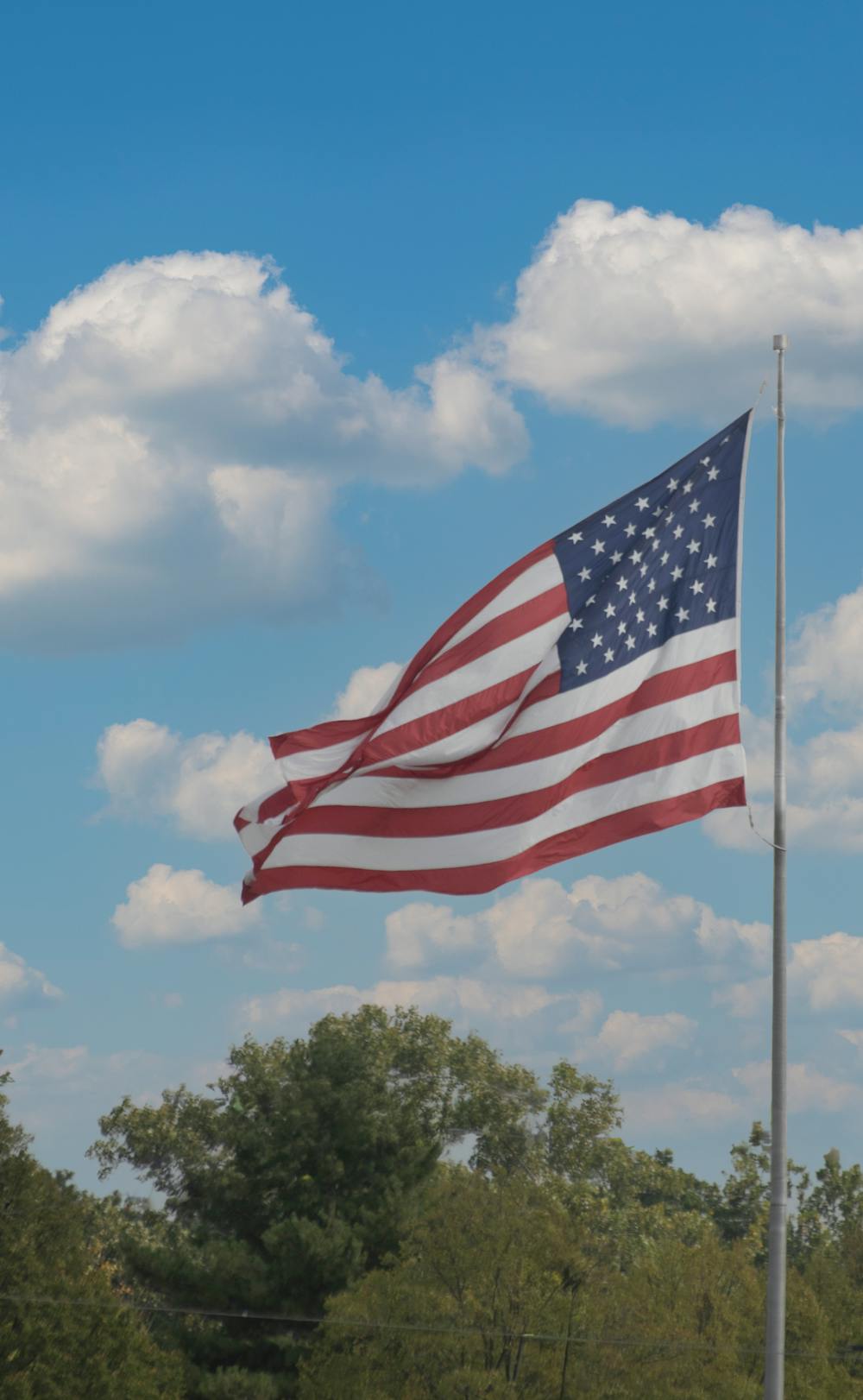Watching a man die for his beliefs was the first time many American Christians had to seriously consider giving up more than comfort for their faith, Nicholas Kerton-Johnson, Loy Chair of Political Science, associate professor of international relations, said.
The prospect of losing your life for your faith makes you examine it in a different way, he said.
Kirk, 31, an outspoken Christian conservative and founder of Turning Point USA, was fatally shot during his American Comeback Tour. Kirk was known for promoting civil public debate with people of different viewpoints.
“He stood for what it meant to be American and democratic,” Kerton-Johnson said. “This feels like an attack. It happened at a university. It feels like an attack on things that Americans are supposed to hold to be very dear.”
There’s a spiritual element, too, he said.
Kirk’s death feels like an encapsulation of the many tragedies and spiritual shifts that occurred in the Western world over the past year, he said. The Western world has poured energy into the destruction of foundations.
Kirk offered people, especially young men, a solid foundation. He was willing to call out truth and lies in a culture that sought to deconstruct everything, Kerton-Johnson said.
“All the foundations on which young people could stand have just been crumbling,” he said. “So, if you're not going to church — you're not getting that — and if you're just in culture — where's your truth? And so, I think to have someone like Charlie Kirk who would stand up and say, ‘Well, this is actually truth, this is how you can order your life…’ If all you have is (to) be whatever you want to be — what the heck does that mean?”
Kirk was right-of-center in his beliefs, but he stood for the traditional liberal ideal of debate, Kerton-Johnson said.
Kirk’s death shook numerous people, especially young people, many of whom said they were surprised to find themselves crying over someone they didn’t personally know.
His online presence made him a constant in people’s lives, Philip Byers, Halbrook Chair of Civic Engagement, said. This, coupled with Kirk’s younger age and position as a commentator, not elected official, made his death more shocking.
Debate, once so prominent in American public life, has become rare, Byers said. Historically, the structure of society made it difficult to insulate yourself from other ideas. Now, people can curate their lives to never hear opposing ideas.
There is an emphasis on language as harm, going far enough to call differing opinions violence,” Byers said. Human nature’s aversion to differing opinions and ideas results in an anti-debate culture.
The First Amendment is only necessary for speech you disagree with, not speech you agree with, he said.
“You cannot coast indefinitely on the labors of people who have wrestled some order out of messy society,” Byers said. “… There will always be people wanting to suppress speech and people wanting to replace speech with violence.”
Kirk’s desire to directly engage with audiences made him more threatening to those with different viewpoints, Byers said.
American history has seen free speech repeatedly tested, Byers said. In the late 1700s, it was the Alien Sedition Acts, the Massachusetts senator who was almost beaten to death for his pro-abolitionist comments in the 1800s and the National Socialist Party of America v. Village of Skokie in the 1900s, a Supreme Court case on the First Amendment.
America’s commitment to public discourse has always prevailed, Byers said.
“I do think there are interesting moments in American history,” he said, “where that commitment to public discourse has been tested in the fire and has so far come through. … we need to pray and work to guarantee that it continues to come through.”
Continued engagement in speech and debate is important, Byers said. While doing so, people need to hold those toeing the line between vigorous debate and actual violence accountable.
American Christians have become comfortable participating in small lies, Kerton-Johnson said. Moments where believers refuse to bend to culture will greatly impact freedom of speech, he said.
“To what extent have Christians tolerated racism? ... Have we tolerated the use of women? Have we tolerated lies about humans being made in the image of God with LGBTQ?” Kerton-Johnson said. “You know, there's all these places where we've just bent the culture because [it’s] a little bit more comfortable. But are we actually gonna say no, no more.”
The gospel was shared in explicit detail with the nearly 200,000 people who attended Kirk’s memorial. Church attendance has increased since Kirk’s death. Kirk was not a perfect man, but the Lord can use his legacy, Kerton-Johnson said.
Christians have a choice between faithfulness to God and faithfulness to the world, he said.
Christians are called to speak the truth in love, Chris Jones, chief of staff and chief information officer, said. Christians are called to walk in wisdom, humility and courage rather than retreat in fear.
Believers aren’t always promised safety, but they are promised God’s presence, he said.
“In times of tragedy, the most powerful thing we can do is pray,” Jones said. “Pray for the family and friends of Charlie Kirk. Pray for our nation. Pray for those who feel afraid or angry. And pray that even in the midst of this darkness, the light of the Gospel would shine. As Jesus taught us, ‘Blessed are the peacemakers, for they will be called children of God’ (Matthew 5:9). Let us be people of peace, compassion, and truth.”





